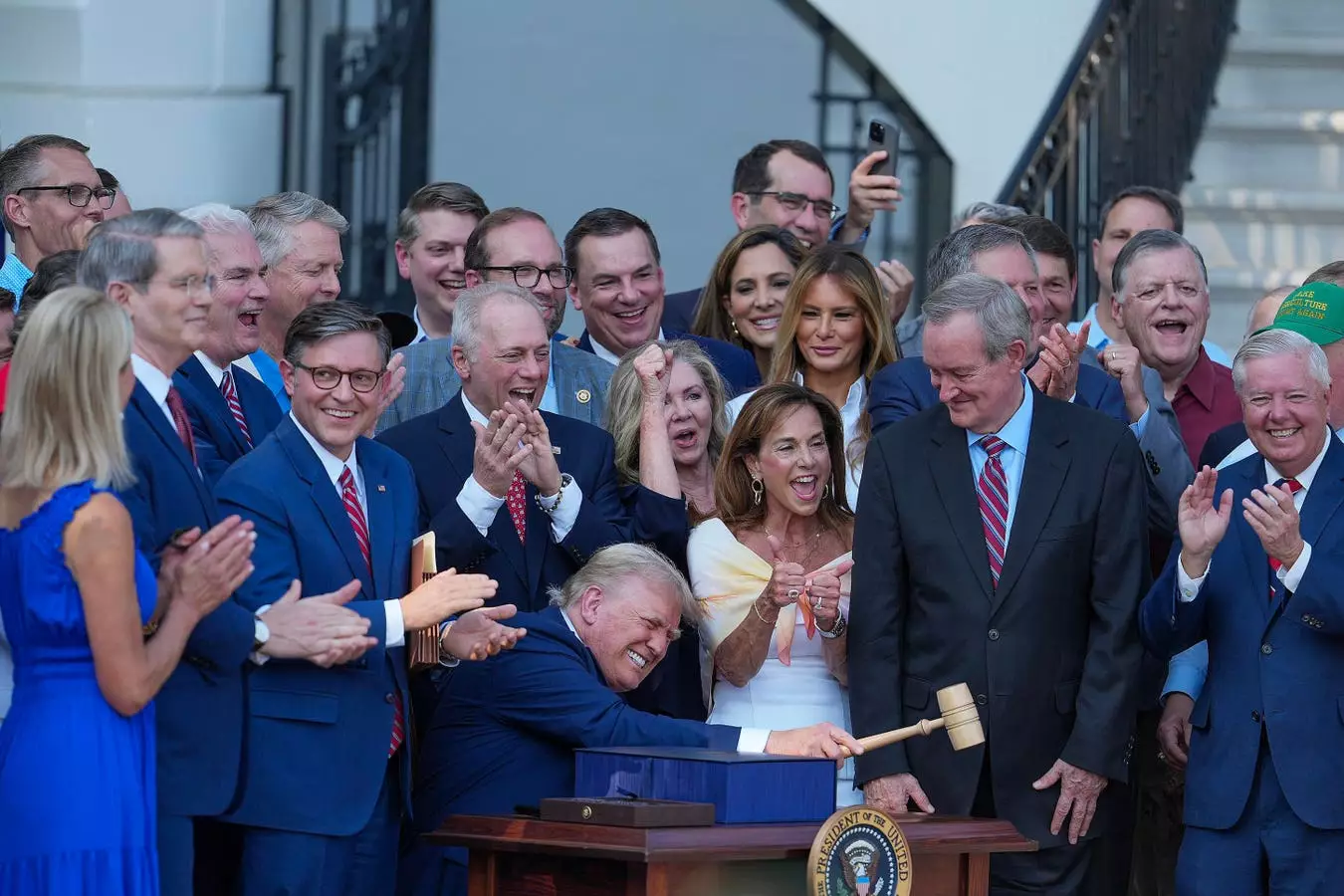The recent enactment of the “One Big Beautiful Bill Act” (OBBBA) marks a pivotal moment in American policy, wielding the potential to reshape social safety nets grounded in decades of progress. By orchestrating the largest spending cuts in history for programs like SNAP and Medicaid—exceeding an astonishing US$1 trillion—the legislation precipitates profound consequences for millions of vulnerable populations. The magnitude of these reductions, particularly targeting essential food assistance and healthcare access, underscores a troubling prioritization: one that risks sacrificing the well-being of the most marginalized in favor of ideological or economic objectives.
The projected loss of food aid for approximately 5 million individuals and the elimination of SNAP-Ed, a program vital for nutrition education, threaten to undermine the foundational goal of equitable food access. Literature from public health research warns that such cuts could lead to over 93,000 premature deaths by 2039, exposing the dangerous fallacy that austerity measures can be devoid of human costs. Reduced purchasing power will likely ripple throughout grocery stores, disproportionately impacting small and large food producers, and exposing a troubling disconnect between policy intent and real-world outcomes. This shift not only diminishes public health but underscores a stark choice: prioritize fiscal conservatism over human dignity.
Immigration Policy as a Tool for Disruption
The OBBBA’s approach to immigration reveals a calculated effort to tighten control and restrict access to essential services for non-citizens, with profound impacts on the food system. Elevating ICE’s budget by more than triple reflects an aggressive stance on detention and deportation, fueling fears of community destabilization. When lawmakers revoke SNAP eligibility for lawful immigrants and impose new taxes on remittances, they further entrench barriers that hinder immigrant families’ ability to secure their own food security.
This strategy undermines the very fabric of community resilience, especially in sectors heavily reliant on immigrant labor—agriculture, hospitality, and food processing. It is a paradoxical move: simultaneously restricting the flow of people and inflating the costs of sustenance for families abroad. Removing vital economic lifelines from immigrant workers not only weakens their ability to contribute to the economy but also destabilizes industries that depend heavily on their labor. The legislation’s aspirations to tighten borders appear to come at the expense of immigrant communities’ well-being, thus threatening the diversity, vibrancy, and sustainability of the American food landscape.
Tax Breaks for Agribusiness and Their Unintended Consequences
A notable element of the OBBBA is its focus on boosting agricultural support programs via tax cuts and increased funding. Yet, beneath these seemingly benevolent incentives lies a preference for large-scale industrial farmers over independent or small family farms. By funneling resources mainly toward commodity support and crop insurance subsidies that favor big agribusinesses, the bill risks consolidating an already concentrated food production system that often benefits corporations at the expense of local farmers.
This legislation sidesteps the critical need for equitable support that favors sustainable, diversified agriculture. Small farmers, foundational to local food systems and ecological health, remain largely overlooked. Furthermore, with the rural health infrastructure receiving marginal funding—merely a third of what Medicaid once provided—the survival of many rural hospitals and communities hangs uncertain. This combination of support for big agriculture and neglect of rural healthcare mirrors a skewed vision of economic growth that benefits a few at the expense of many.
Environmental Policies and the War on Climate Progress
One of the most alarming aspects of the OBBBA is its rollback of climate initiatives and sustainability investments. Halting over US$500 billion in projects like those funded by the Inflation Reduction Act signals a retreat from America’s commitments to clean energy and climate resilience. The bill’s support for fossil fuel industries—through tax breaks and expanded drilling rights—aligns with a clear preference for short-term economic gains over long-term environmental stability.
This regression not only undermines global climate efforts but also perpetuates a model of energy consumption reliant on finite resources and environmentally damaging practices. Such policies threaten to reverse progress made in transitioning toward renewable energy and could impose severe ecological and health costs in the decades to come. It is a stark reminder that political priorities often favor fossil industries over planetary health, placing future generations in jeopardy.
The Power of Community and Grassroots Resistance
While the OBBBA’s sweeping changes seem daunting, the collective response from communities and grassroots organizations offers a beacon of hope. Small victories—such as unionization efforts at local co-ops, innovative programs connecting children to fresh food, or pioneering urban agriculture projects—demonstrate that change is possible from the ground up. These localized efforts embody resilience, creativity, and a refusal to accept policies that undermine collective well-being.
Progressive communities understand that real transformation requires more than legislative shifts; it demands persistent advocacy, community engagement, and reimagining food systems that prioritize sustainability, equity, and dignity. Each campaign, each union vote, each new farm-to-school program serves as a defiant stand against destructive policies, emphasizing that change, while slow, can be enduring and profoundly impactful.
Overall, the OBBBA exemplifies a brazen redefinition of priorities—favoring big business, fossil fuels, and restrictive immigration policies over human health, environmental sustainability, and equitable food access. Yet, amid these challenges lies a resilient movement rooted in local action, innovation, and shared purpose. The battle for a just, sustainable food future is far from over, and it is the collective efforts of communities that will ultimately determine whether this legislation becomes a moment of regression or a catalyst for meaningful change.


Leave a Reply